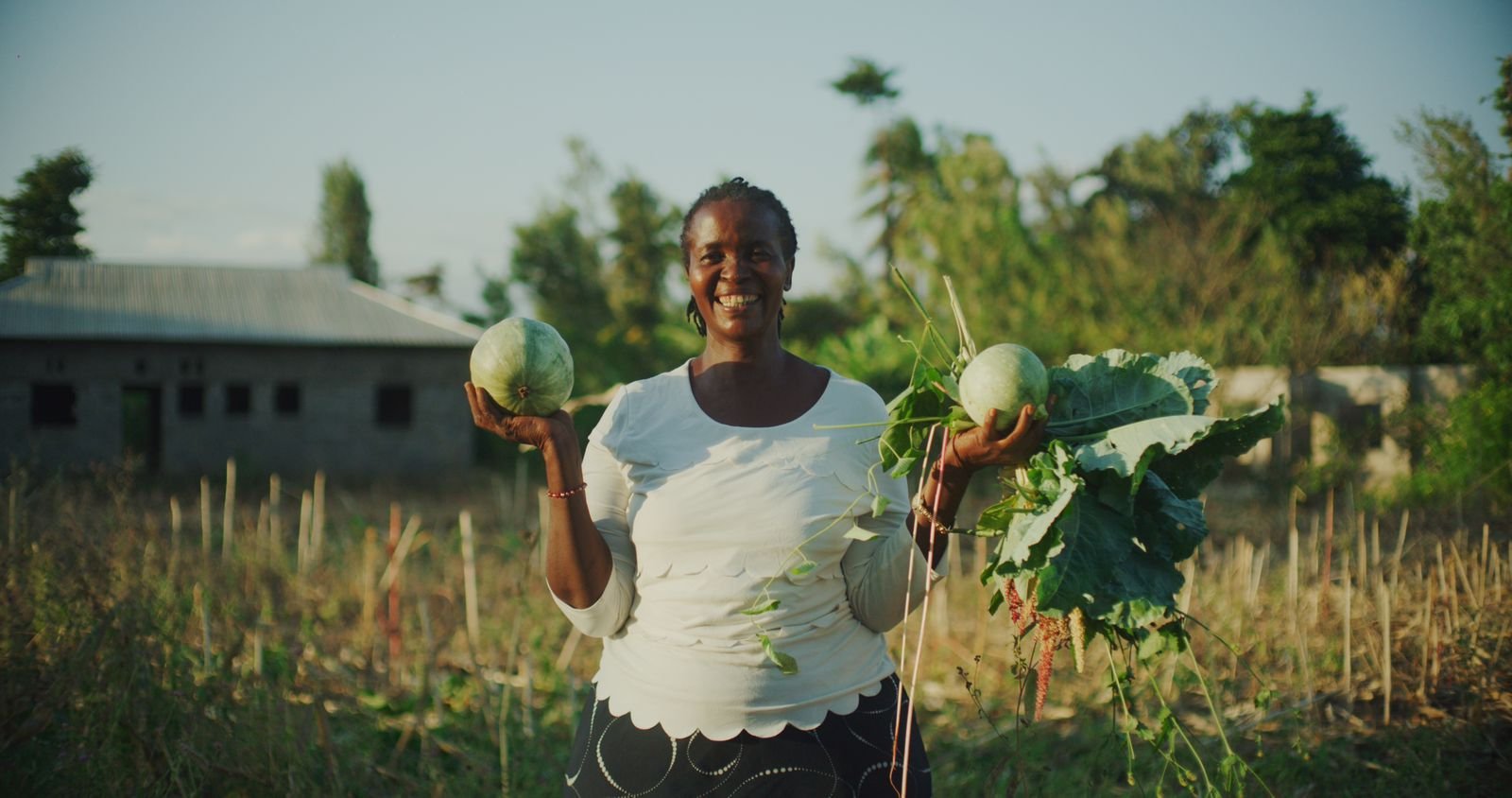
what Is agroecology?
Photo credit: Alliance for Food Sovereignty in Africa
You can also view this guide as a PDF or Google Doc.
Agroecology is defined as a science, a set of practices, and a social movement.
At its most fundamental level, it applies ecological principles to agricultural systems; however, it also incorporates social principles of democratic decision-making, social justice, and diversity (among others). The High-Level Panel of Experts on Food Security and Nutrition notes that:
“Agroecological approaches favor the use of natural processes, limit the use of purchased inputs, promote closed cycles with minimal negative externalities and stress the importance of local knowledge and participatory processes that develop knowledge and practice through experience, as well as more conventional scientific methods ... Agroecological approaches recognize that agrifood systems are coupled social–ecological systems from food production to consumption and involve science, practice and a social movement, as well as their holistic integration, to address food and nutrition security.”
In addition to being a scientific practice, agroecology also encapsulates wider demands for justice, food sovereignty, and equitable decision-making in agricultural systems.
Agroecology is a fairly recent name for a much longer-standing set of practices. While the term “agroecology” only emerged in the 1970s, the principles and techniques it advocates have long been practiced by small-scale farmers and Indigenous peoples around the world. These systems were disrupted and marginalized by slave trading, colonization, genocide, and the imposition of industrial capitalist agriculture by European and European-descended peoples. For some groups fighting these harmful legacies, agroecology has been a way to reinvigorate and validate traditional practices, and to begin the work of restoring both social and ecological relationships destroyed by white supremacist capitalist patriarchy. Whether using the term “agroecology” or not, many social movements around the world emphasize a return to ecologically-grounded and historically-rooted agricultural practices as a central component of their political work.
Sources:
Susanna B. Hecht, “The Evolution of Agroecological Thought,” in Miguel Altieri (1995), Agroecology: The Science of Sustainable Agriculture
The High Level Panel of Experts on Food Security and Nutrition (July 2019), Agroecological and other innovative approaches for sustainable agriculture and food systems that enhance food security and nutrition, Committee on World Food Security
Notes:
The idea of white supremacist capitalist patriarchy comes from the work of bell hooks. See e.g. bell hooks (1997), Cultural Criticism and Transformation [interview]
The experts, practitioners, and organizational representatives interviewed in the five films of the Rich Appetites series demonstrate the range of social, ecological, cultural, and political aspects of agroecology and other Indigenous food production practices.
Meet the Experts
-

Million Belay
Million Belay is the General Coordinator of the Alliance for Food Sovereignty in Africa (AFSA), a continent-wide “network of networks” of civil society organizations advocating for food sovereignty and the rights of local and Indigenous peoples. AFSA and its 30 active member organizations collectively represent over 200 million African small-scale food producers. Million is also a founder of MELCA-Ethiopia, an NGO which seeks to protect and preserve traditional ecological knowledge in Ethiopia. He is a member of the International Panel of Experts on Sustainable Food Systems (IPES-Food) and holds a PhD in Environmental Learning, an MSc in Tourism and Conservation, and a BSc in Biology.
-
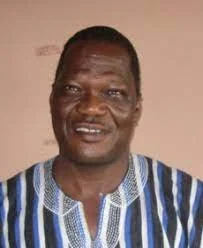
Bern Guri
Bernard (Bern) Yangmaadome Guri is the Executive Director of the Centre for Indigenous Knowledge and Organizational Development (CIKOD), which works toward increased political visibility and participation of Indigenous institutions for endogenous development in Ghana. With over 30 years of experience in community development, Bern has worked for the Catholic Bishops’ Conference, the Konrad Adenauer Stiftung, the Sacred Natural Sites Initiative and the Eucumenical Association for Sustainable Agriculture (ECASARD), of which he was a co-founder, before founding the CIKOD. Bern holds an MA in Development Studies, a Post-Graduate Diploma in Development Studies, and a BSc in Agriculture.
-
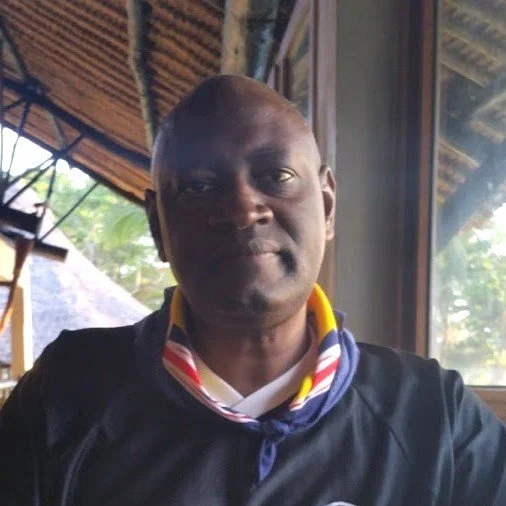
Daniel Maingi
Daniel Maingi is a science and development practitioner in Kenya with a 15-year career helping bring learning on appropriate and sustainable technologies to Civil Society Organizations in Eastern Africa. He is Programs Manager at Growth Partners Africa and Coordinator of the Kenya Food Rights Alliance (KeFRA). KeFRA is a network of non-state actors championing food sovereignty in Kenya through research and policy advocacy, as well as practical demonstrations of agroecological methods. Daniel was trained as a plant geneticist, and he holds a PhD in Agroecology and Sustainable Agriculture.
-

Mariam Mayet
Mariam Mayet has been the Executive Director of the African Centre for Biodiversity (ACB) since its founding nearly 20 years ago. ACB is a research and advocacy organization which began with a focus on GM seeds, and has now expanded its scope to the interconnected issues affecting food sovereignty and biodiversity in Africa, mostly in Southern, West and East Africa. Mariam holds BA, LLB, and LLM degrees from the University of the Witwatersrand in Johannesburg.
-
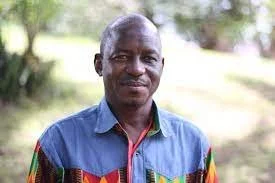
Mamadou Goïta
Mamadou Goïta is a development socio-economist and specialist in education and training systems, and is the Executive Director of the Institute for Research and Promotion of Alternatives in Development (IRPAD). IRPAD describes itself as a “think and do tank” working on capacity building and advocacy regarding the management of food systems, natural resources, and economic development. Mamadou is a co-founder of AFSA and the Coalition to Protect African Genetic Heritage (COPAGEN). He has previously worked for ROPPA (West Africa Farmers and Producers Organization), UNICEF, UNDP, OXFAM-Belgium and ACORD, and has been an advisor on expert panels. He is also a member of multiple pan-African networks and serves on the boards of international NGOs and funds.
-

Assétou Foune Samake Migan
Assétou Foune Samake Migan currently serves as Malian Minister of Higher Education and Scientific Research. She holds a PhD in biology and plant genetics, and she taught at the Ecole Normale Supérieure of Bamako before moving into advocacy and capacity-building for food sovereignty. She has worked for Winrock International and the Unitarian Services of Canada, and co-founded IRPAD and the African Institute of Food and Sustainable Development. Amongst numerous other positions, she is a member of the Forum for Another Mali and COPAGEN, and was previously on the board of directors of GRAIN.
-
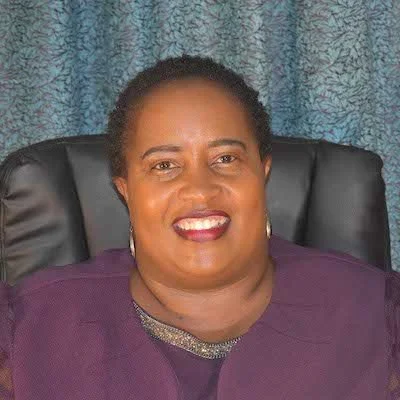
Anne Maina
Anne Maina is the National Coordinator of BIBA-Kenya, the Biodiversity and Biosafety Association of Kenya (formerly the Kenya Biodiversity Coalition, KBioC). A network of over 60 organizations, BIBA-Kenya aims to raise public awareness and influence policies relating to the environment, agriculture, livestock, food safety, and health and biodiversity. Initially focused on opposing GMOs, BIBA-Kenya has broadened its scope to tackle soil fertility, build seed sovereignty, and campaign against the “green revolution.” Anne has worked for the African Biodiversity Network (ABN) and Participatory Ecological Land Use Management (PELUM), and she has been instrumental in the development of numerous networks, including AFSA and the Eastern and Southern Africa Small Scale Farmers’ Forum (ESAFF).
-
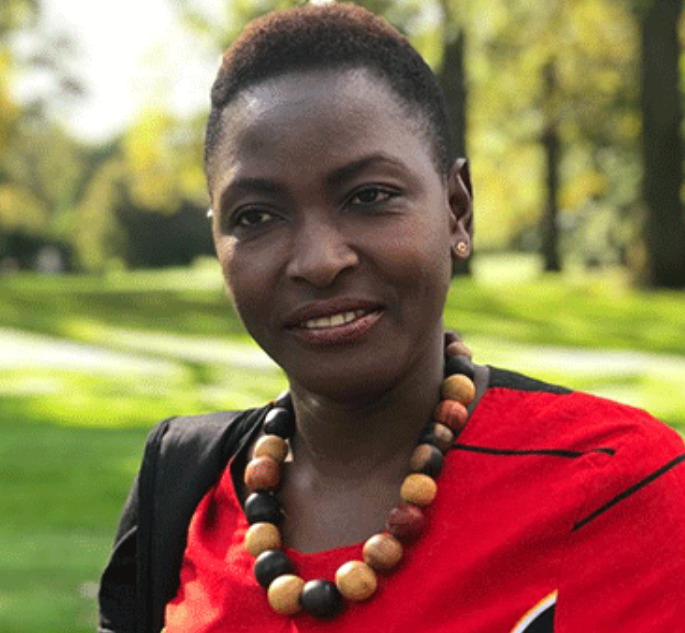
Leonida Odongo
Leonida Odongo is a co-founder of Haki Nawiri Afrika, which works with university students and marginalized communities to build social justice. In particular, Haki Nawiri Afrika focuses on agroecology, climate, youth, and gender issues. Leonida holds an MA in International Conflict Management and a BA in Sociology and Political Science, and she has 17 years of experience in community organizing and social justice work. She is a member of the Climate Action Group, co-chair of the Seed Working Group at AFS, and a board member of A Growing Culture.
-
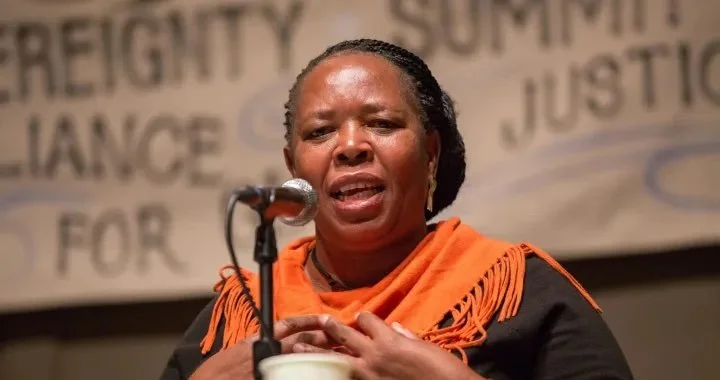
Elizabeth Mpofu
Elizabeth Mpofu is a farmer, writer, and activist, and is the founder of the Zimbabwe Smallholder Organic Farmers Forum (ZIMSOFF), which aims to influence policies and raise public awareness in support of agroecology and smallholder farmers’ rights. From 2013 to 2021, Elizabeth was General Coordinator of La Via Campesina. She has been a board member of AFSA and ESAFF, and she founded the African Women Collaborative for Healthy Food Systems. Elizabeth was Special Ambassador to the Food and Agriculture Organization (FAO) for the International Year of Pulses.
-

Malik Yakini
Malik Yakini is Executive Director and co-founder of the Detroit Black Community Food Security Network, which works for self-reliance, food security, and justice in Detroit’s Black community. In support of these goals, DBCFSN influences public policy, engages in urban agriculture, and encourages cooperative buying, among other initiatives. DBCFSN also runs D-Town Farm, a roughly seven acre regenerative agriculture farm, which serves as a space for food production, community building, and training programs. Malik is also a founding member of the National Black Food and Justice Alliance and works with Uprooting Racism Planting Justice, the Detroit Food Policy Council, and the Michigan Food Policy Council. Malik’s background is in education, having served as Executive Director of the African-centered Nsoroma Institute for 20 years.
-

Jesús Vázquez
Jesús Vázquez Negrón is an organizer, popular educator and lawyer, and serves as General Coordinator and Director of Organización Boricuá de Agricultura Ecológica de Puerto Rico. Founded over 30 years ago, Organización Boricuá is a network of farmers, agricultural workers and activists working on all aspects of food sovereignty, including capacity-building and mutual support amongst farmers, policy advocacy, and creating seed banks and agricultural certifications. Jesús works closely with a number of international coalitions, including the Climate Justice Alliance, the US Food Sovereignty Alliance, and La Vía Campesina.
-

Daniel Yando
Daniel Yando is an extension officer for the Ministry of Food & Agriculture in the Bono East region of Ghana. He has worked extensively with the Peasant Farmers Association of Ghana (PFAG), and is an expert beekeeper. Trained in conventional agriculture, his experiences led him to embrace agroecology as a more sustainable and accessible approach to food production and ecosystem health. He now works with communities, farmers, and youth to spread agroecological practices, host demonstrations and experiment with new techniques, and train people in beekeeping as an additional livelihood support.
-

Marcus Henderson
Marcus Henderson and Derrick McDonald are community organizers at Black Star Farmers, which is “dedicated to creating radical, joyful, and supportive space for communities to reclaim their ancestral foodways” through land stewardship, mutual aid, education, and direct action. Black Star Farmers began through guerilla gardening during the Capitol Hill Organized Protest (CHOP) during the 2020 George Floyd uprising, and today they steward several gardens in Seattle. Marcus graduated from Stanford University with a degree in Energy Resources Engineering but quickly pivoted into working on developing the skills needed to support a low-energy intentional agrarian community outside of the current capitalist paradigm. Marcus spent time in the Caribbean learning how to survive off the land from peoples committed to living outside of the system, and then went to Moab, UT, where they learned natural building techniques while building low-income housing. Soon after arriving in Seattle, Marcus found a home amongst Black Star Farmers to continue developing skills and build community.
-
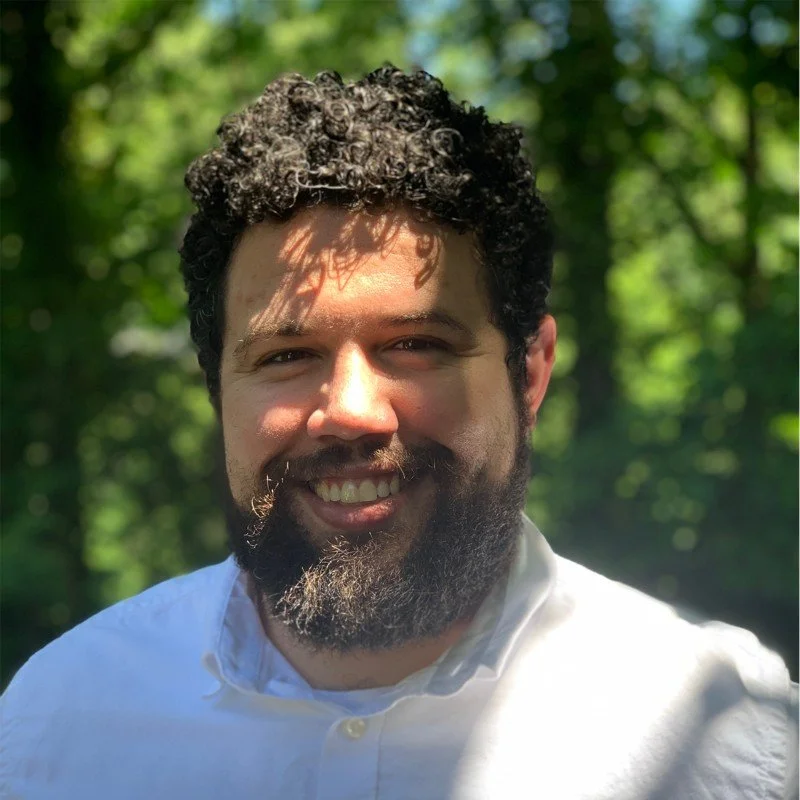
Derrick McDonald
Derrick McDonald is a Black designer and researcher working on the implementation of racial equity in public space. As a member of the Space Matters cohort, they have contributed to the development of a critical race spatial praxis and practice uncovering, understanding, and exercising Black and Indigenous knowledge in their daily work.
Let’s talk about it…
Questions for further discussion
How would you explain agroecology to someone who has never heard of it? What keywords stand out most to you?
What questions do you have about agroecology in theory and/or in practice?
What do you think should be done to promote agroecology and make it viable, locally (in your area), nationally (in your country), and/or globally? What potential barriers and opportunities do you see?